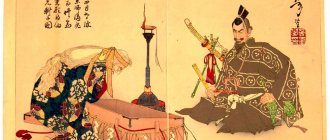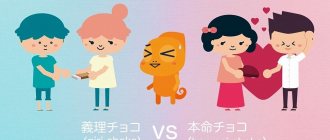Other ways to express love
There are many other phrases you can use to express love in Japanese without directly saying “I love you.” This is not exactly a declaration of love, but if you say these words to your loved one, it will help him realize your feelings for him.
Issho ni itai一緒にいたい
I wanna be with you.
Aitai _
I want to see you/I miss you (or literally: I want to meet you).
Futari de ikō / issho ni ikō二人で行こう / 一緒に行こう
Let's go together.
For example, if someone you like says they want to go to an event, you might say:
“Futari de ikō”, or “issho ni ikō”.
If you want it to be more like an invitation, you can say:
Issho ni ikimasenka?一緒にいきませんか?
Would you like to come with me?
Phrases for expressing love in Japanese
There are several phrases you can use to tell someone you love them, but remember to pay attention to the context to make sure you use the right expressions.
Kokuhaku 告白
Before you even think about how to declare your feelings in a romantic sense, you must understand kokuhaku
- “confession”. This is when you "confess" your feelings for someone in hopes of reciprocation.
In case of recognition, you can say: “ tsukiatte kudasai
付き合ってください”, which means: “Please date me” or “Can we go on a date?”
Tsukiau
付き合う in this case means “to meet” with the connotation of romantic dates.
Without this recognition, you are technically not in a romantic relationship with the other person.
Suki desu 好きです and daisuki desu 大好きです
“Suki desu
” means “to love,” so if you take someone aside and tell that person “suki desu!” or “suki dayo!” (informal), this will mean that you like him as more than just a friend.
Often in this context, this phrase is used to mean “I love you,” even if the Russian translation is “I like you.”
“Daisuki desu
” means to really like something very much, so it has the same meaning as “suki desu”.
For example, if you want to confess your feelings for someone, you could say:
Suki desu! Tsukiatte kudasai.
I like you/I love you. Please date me.
Note that often both suki desu and daisuki desu are used in a more general sense to express that you like something, not just in a romantic context.
Aishiteru
Technically it means "I love you" and can only be used in a romantic context. Whether you can actually say this to someone is another matter, because this method of declaring love is very rarely used and is extremely serious.
The most popular Japanese words and their concepts that are often found in anime.
- Baka (Baka) - Fool, idiot, cretin.
- Dare (Dare) - Who.
- Demo (Demo) - But.
- Nani (Nani) - What.
- Sensei (Sensei) - Teacher, mentor.
- Senpai (Senpai) - Senior in position.
- Hajime! - Let's start!
- Yame - Finish.
- Wakarimasen - I don’t understand.
- Kore - This.
- Sore - That.
- Are - It.
- Dekiru - Perhaps.
- Dekinai - Impossible, I can’t.
- Donna - Which one.
- Dare-no - Whose.
- Itsu - When.
- Ikutsu - How much.
- O-kane - Money.
- Sugoi - Cool, cool.
- Shimatta - Damn, damn, bummer.
- Shimaimashita - A more polite form of shimatta, with the same meaning. (Used in polite company).
- Ti (chi) - Damn.
- Kusou - Shit. (Can be used figuratively. Often in the form of an exclamation.)
- Chikushotiksho (chikushou) - Bitch. (Quite a sharp form. Often used not as an insult, but as an exclamation).
- Baka (baka) - Fool. Not a very offensive expression. Often used by children.)
- Bakayarou - A more offensive and cool form of the previous one. (Used by men and in relation to men. The meaning is closer to a bastard).
- Kono-yaro - Bastard.
- Kusotare - Idiot, moron. (Literally, a head made of shit).
- Reiji (reijii) - Psycho.
- Yariman - Whore.
- Gomen - Sorry.
- Gomenesai - Sorry. (When I was very guilty ^^).
- Arigato - Thank you.
- Nani - What.
- So - Well...
- So ne - Perhaps...
- Itadakimas! - Bon appetit.
- Hai - Yes.
- Vakaranai - I don't know.
- Anta baka - What a fool.
- Bakayaro - Moron.
- Watashi - I'm sure.
- Kawaii – Cute.
- Yahoo! - Hello.
- Vakateimas - I understand.
- Omedeto! - Congratulations!
- Vakarimashta - it will be done.
- Doshte - Why.
- Bakemunume! - Devil! (When things go to hell).
- Ti... - Damn... (Exhale).
- Arigatou [arigato] - Thank you.
- Betsu ni [bang ni] - Nothing.
- Chigao [chigao] - No.
- Chotto ii [chotto ii] - There is a moment, please take a break.
- Domou arigatou [Domo arigatou] - Thank you very much.
- Doumo [domo] - Thank you.
- Gomen nasai [gomennasai] - I beg your pardon.
- Hai [hai] - Yes.
- Hontou [honto] - True, really.
- Ie [ie] - No.
- Konbanwa [konbawa] - Good evening.
- Konnichiwa [konnichiwa] - Good afternoon.
- Masaka [masaka] - It can’t be.
- Nani [nani] - What. (Question).
- Naruhodo [naruhoto] - Of course it’s clear.
- Ohaio [ohayo] - Good morning.
- Okaeri nasai [okarinasei] - Welcome.
- Osoi [osoi] - Late.
- Oyasumi [oyasmi] - Good night.
- Sayonara [sayonara] - Goodbye.
- So, soka [so], [juice] - That's how it is.
- Uso [uso] - A lie is not true.
- Wakanai [wakanai] - I don’t know.
- Wakatta [wakata] - I see.
- Wari [vari] - Sorry.
- Daijoubu [daijyoubu] - Everything is fine.
- Demo [demo] - But (preposition).
- Imitsu [himitsu] - Secret
- Ich, ni, sam, chi [ich, ni, himself, chi] - One, two, three, four (counting).
- Kuzo [ikko] - Go.
- Itai [itai] - It hurts.
- Kuso [kso] - Damn (expletive).
- Tasukete [taskete] - Save (request for help).
- Yume [yume] - Dream, dream.
- Matte [mate] - Wait.
- Kenchi [kenshi] - Forbidden.
- Hayaku [hayaku] - Faster.
A similar blog is already on the site, but there is more information here.
"Love" in Japanese
There are two words for "love", but they are used to express love in different ways. The first is ai
愛
, which is a more general word and includes both romantic love and love for friends, family, pets, things, etc.
Some words that include the character 愛:
Kawaii
可愛い
— cute
Aishō愛称
— pet name or nickname
Mederu愛でる
— to appreciate, admire
Aidoku愛読
— to love (read the author, book)
The second word is koi
恋
, which expresses romantic love. For example, you will see this hieroglyph in words such as:
Koibito
恋人
—beloved
Koiuta恋歌—love
song
Hatsukoi初恋
—first love
There is also a word written with these two characters: renai
恋愛
.
It means romantic love or infatuation. For example, a love marriage, as opposed to an arranged marriage, is called renai kekkon恋愛結婚
.
rabu is sometimes used
ラブ, which is the English word "love" written in katakana. For example, young people say that their relationship is “rabu rabu ラブラブ” when they are head over heels in love with each other.









